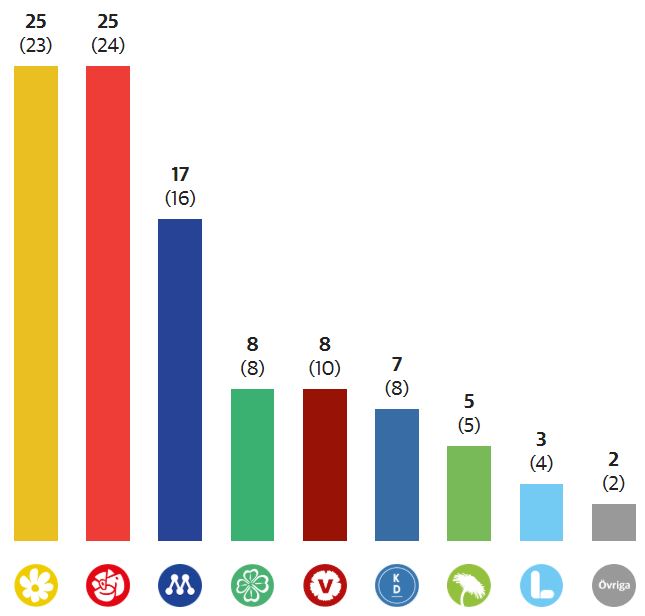
It happened again – the Sweden Democrats tied for first place in the latest poll. This time it was the Dagens Nyheter/Ipsos poll, whose results came out this afternoon. In the previous poll, the Sweden Democrats (SD) and the Social Democrats were also equal at the number one spot, but the margin of error negated the certainty of results. This time’s results confirm the trend (DN.se/Poll).
For a party that all the other parties wouldn’t speak to – ignoring them like children in a playground – the Sweden Democrats have done ok. More than ok. And the irony is that they’ve done so well – arguably – because everyone else was excluding them from their games and policy making. The Sweden Democrats have gotten votes from everyone who blames immigration for Sweden’s woes, from those tired of the current parties, and from those who protest how things seem to be going in Sweden – all the while being spared from having to face voter fire and ire because they haven’t been responsible for any of it: They’ve been kept away from any formal position of power, but also from responsibility.
The changes in percentage points were small and can easily sway another way come next poll. However it appears clear that Nyamko Sabuni is not raising her Liberal party’s numbers, and that Moderate party leader Ulf Kristersson is going to have a very hard time over the next few months (weeks?) making the decision of how close to the Sweden Democrats he’s willing to get. If he’s willing to formally stand with SD, the right block composed of (theoretically speaking) the Moderates, the Christian Democrats and SD get 48% of voter support, in contrast to the 42% the consortium of Social Democrats, Center, Liberal and Green parties have together. However, these parties have the support of the Left party: However unhappy the Left is with the Social Democrats, it’s highly unlikely they’ll help to vote them out. The Left gets generally at least 8% of voter support, which tips the scale.
The problem with lumping the right block parties together is that SD isn’t really a conservative party, but instead has often actually voted with Social Democrats on policy questions. What unites them with the right block is largely opposition to the current Social Democratic and Green party government, and a promise for a tougher stance against crime. How close they really want to dance, especially at future balls, is hard to say.
As mentioned in this blog the other day, the Sweden Democrats have made a lot of platform changes, making themselves over into a party you could invite in without having to be too scared of what the neighbours might think. They are, and have been for years, much too big to ignore. 25% of the population, at last poll, is ready to come to any party where SD is included.
